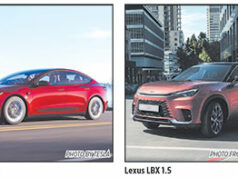Five disruptive global retail trends
KPMG, one of the world’s biggest professional services firms, argues that disruption — which is often portrayed as something “that is coming” — is already being felt in the global retail industry.
“In reality, we are already disrupted. The new retail world we have been promised is here.”
In a report published last March, the firm compiled a list of five trends impacting the industry. The first is that customer experience is more important than ever.
“Successful retailing in 2018 comes down to obsessing about customer experience. Essential to achieving this is digital and physical touchpoints working together seamlessly,” KPMG said.
To devise new retail models, retailers try to make sense of their share of consumer spending, and how their customers search, shop and buy. They are reinventing how they do their business — whether by having a showroom or a strong presence in e-commerce.
Physical stores, contrary to popular perception, are far from oblivion. “Put simply, stores that are doing well offer a customer experience that meets or exceeds customer expectations,” KPMG said. “In summary, customers will shop where they enjoy their experience, this could be on a single channel or a combination of channels.”
The next trend the firm identified is the growing clout of artificial intelligence or AI. This year, adoption of AI will continue to rise, and chatbots are taking the lead, the firm said.
These bots, used for handling customer service queries and recommending intelligent purchases, will only become even more common due to the increasing ease of their deployment, instant availability and improved quality.
A significant amount of data, the firm said, is now in the hands of retailers that they can harness to power AI and deliver experiences that are personalized, customized and localized to customers.
“Retailers using AI to its fullest potential will be able to influence purchases in the moment and anticipate future purchases, guiding shoppers toward the right products in a regular and highly personalized manner,” KPMG said.
A trend that will continue, according to the firm, is the rise of the conscious customer. “Customers are demanding transparency as they take an increased interest in the ethical practices of the brands they buy from. Furthermore, customers today who are more tech-savvy, have a much keener eye for authenticity versus marketing speak.”
Customers today can tell what is authentic from what is intended to solely drive sales. And the judgements they make about what to buy and where to shop are informed by values, in the belief that their purchase habits impact the world.
KPMG said that winning over customers today requires standing up for something and reflecting that message consistently throughout the entire business from senior leadership to front-line staff.
The fourth trend, according to the firm, has to do with evolution of the new retail world. “As more retailers adapt to the changing expectations of customers, we are finally seeing the new retail world evolve. This is the consequence of significant behavioral shifts over the last few years,” the firm said.
Customers now have the power — they’re in the driver’s seat, and new technologies have put them there. Apps — from Snapchat to WhatsApp — indicate that the world is moving toward a reality in which everything happens in real time.
“The natural outcome is that people want that instant gratification. This has had a deep impact on customer expectation,” KPMG said.
The fifth and final trend involves “a tale of two hemispheres.” The firm noted that traditionally, companies in China borrow products and business models from the West and adapt them to their local markets. Now, the Eastern landscape is being shaped not by ideas and inventions derived from the West but by homegrown platform businesses.
“China has developed a unique innovation ecosystem that has resulted in a revolutionary approach on a mass scale,” KPMG said. “It is different from that in the West, and it is impacting both emerging and developed economies.”
The firm added: “China’s innovative tech companies are dominating the local market and it may just be a matter of time before they themselves move West.”



